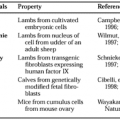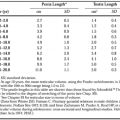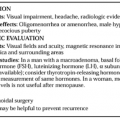NATURAL HISTORY OF GRAVES DISEASE
Part of “CHAPTER 42 – HYPERTHYROIDISM“
Although our understanding of the pathogenesis of Graves disease is progressing rapidly, we still cannot accurately predict the natural history in a given patient. Virtually all patients with Graves disease can be treated effectively with antithyroid drugs, 131I, or surgery. Most patients treated with 131I or surgery eventually become hypothyroid and require L-T4 therapy. Therefore, if a patient does not become endogenously hypothyroid within the first several months after radioactive iodine therapy, he or she will need clinical and laboratory examination once or twice yearly thereafter. Although most patients who do manifest radioiodine-induced hypothyroidism have no recurrences of thyrotoxicosis, an occasional patient with documented hypothyroidism may again develop thyrotoxic Graves disease and require definitive antithyroid therapy. These patients probably have heterogeneous anti-TSH receptor antibodies in their serum, with earlier predominance of the blocking antibodies,40 after which the character or affinity of the antibodies changes to predominantly stimulating antibodies. Patients with stimulating TSH receptor antibodies in high titer or affinity may have particularly aggressive disease, which may include resistance of thyrotoxicosis to two or three standard doses of 131I therapy or recurrence after a near-total thyroidectomy.
Stay updated, free articles. Join our Telegram channel

Full access? Get Clinical Tree






